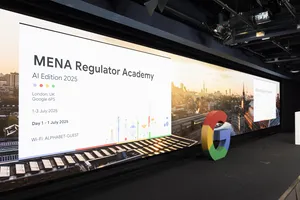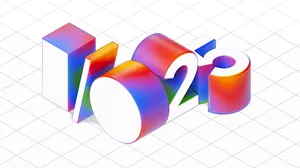Meet Bard in Arabic

Curiosity and imagination are the driving forces behind human creativity. Whether it's a child inventing a game, friends dreaming up their next adventure, or an entrepreneur coming up with a new business idea, our ability to imagine new possibilities is one of our most innate human qualities.
That’s why we created Bard: to help you get your ideas off the ground, explore the world from different perspectives and boost your productivity. Last March, we launched Bard in English and today. I am excited to announce Bard’s biggest expansion to date. It’s now available in most of the world, and in over 40 spoken languages including Arabic.
Bard is now available in Arabic
Starting today, you can collaborate with Bard in Arabic. Powered by Google’s latest language model ‘PaLM2’ which has a multilingual understanding of information, Bard can understand questions in over 16 Arabic dialects including Egyptian colloquial Arabic and Saudi colloquial Arabic, and share responses in Modern Standard Arabic (MSA).
Bard can summarize key points for you

Our engineering team and linguist experts worked closely together to enhance Bard’s experience for Arabic speakers around the world, and that includes for example Bard’s user interface (UI) that supports right-to-left script. Bard also understands input that includes Arabic and another language in tandem (known as code-switching).
Bard is able to understand a word like "دركسيون" which means steering wheel in French

You can ask Bard in English and request the answer to be in Arabic

Bard’s helpfulness & accessibility
We are also announcing today a set of new features to increase Bard’s accessibility and helpfulness including:
- Listen to responses: Sometimes hearing something out loud can help you approach your idea in a different way. That’s why, starting today, you can listen to Bard’s responses. Simply enter a prompt and select the sound icon to hear Bard’s answers.

- Pin, organize and modify conversations: We’ve heard you want to be able to revisit prompts, so we’re adding new ways to pin and rename your conversations with Bard. Now when you start a conversation, you’ll see options to pin, rename and pick up recent conversations in the sidebar.

- Share responses with friends: We've also made it easier to share part or all of your Bard chat with your network. With shareable links, you can share your ideas and creations with others.
- Export code to more places: We’re continuing to see interest in using Bard for coding tasks. So today we’re adding a new feature that allows you to export Python code to Replit, in addition to Google Colab.

- Easily adjust Bard’s responses: You can now change the tone and style of Bard's responses to five different options: simple, long, short, professional or casual. This feature is live in English and will expand to new languages soon.

- Use images in your prompts: Images are a big part of how we put our imaginations to work. At I/O, we announced we’re bringing the capabilities of Google Lens into Bard. Whether you want more information about an image or need inspiration for image text, such as a thank you note about a gift, you can now upload images with prompts and Bard will analyze the photo to help. This feature is now live in English, and we’ll expand to new languages soon.
As part of our bold and responsible approach to AI, we’ve proactively engaged with experts, policymakers and regulators on this expansion. And as we bring Bard to more regions and languages over time, we’ll continue to use our AI Principles as a guide, incorporate user feedback, and take steps to protect people’s privacy and data.
Visit https://bard.google.com/ to access Bard today. You’ll not only find the tools to bring that idea to life, but also you may uncover an entirely new one.






